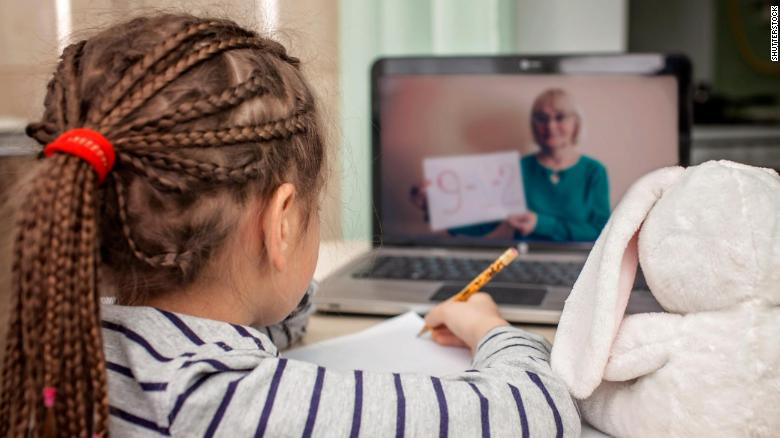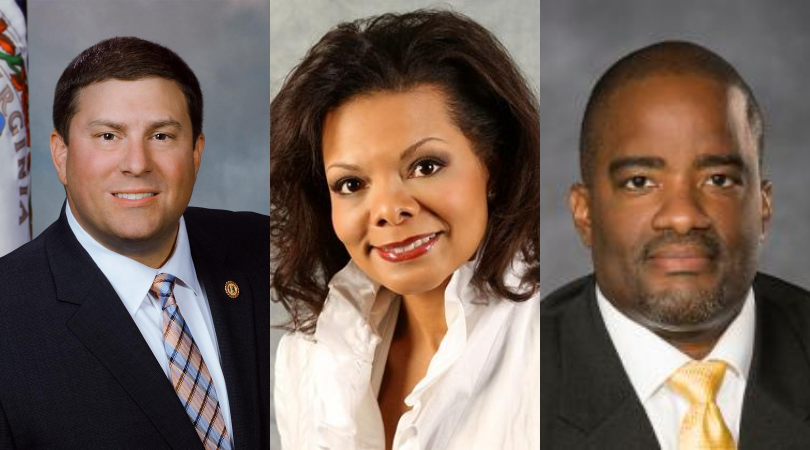News
Virginia schools use guidance from VDOE and face challenging decisions when reopening

August 25, 2020
By Briana Williams
As Virginia’s K-12 school divisions work to determine their reopening plans and what’s best for their communities amid the ongoing pandemic, VCU’s L. Douglas Wilder School Wilder School of Government and Public Affairs joined forces with the School of Education to offer some helpful guidance.
James Lane, Ed.D., Virginia Department of Education superintendent of public instruction, and Maria Pitre-Martin, Ph.D., superintendent of Petersburg City Public Schools joined the Wilder School’s Alumni Lunch and Learn Series on August 19 with a presentation on “Reopening Virginia's K-12 Schools and Measuring the COVID-19 Journey: Recover, Redesign, Restart.” The discussion was moderated by VCU School of Education Dean Andrew Daire, Ph.D.
“I do believe that what’s most important in the work that we do at the School of Education is that we are responsive to the needs of the Commonwealth of Virginia and our surrounding school divisions,” said Daire. “I am really excited to have had the opportunity to partner with both the Virginia Department of Education and Petersburg City Public Schools.”
Dr. Lane said the department is supporting school divisions for returning to instruction in the fall through face-to-face, hybrid, and virtual models adopted by K-12 schools.
“We are all about maximizing student potential at VDOE. It’s no longer about whether students are meeting an arbitrary benchmark at any point in time, but it’s about if we are taking them from where they are to the maximum point of where they could be,” said Lane. “The shift is really important in the context of the pandemic because it also affects the way that we are approaching the needs that our students have whether it’s in person or in a virtual setting.”
The VDOE school reopening plans were designed to:
- Align with the forward VA Blueprint and phases set by Governor Northam
- Scale-up opportunities for in-person instruction
- Address the health and social, emotional, and physical well-being of students and staff
- Prioritize the needs of our most vulnerable learners, for whom in-person instruction is most essential
The school boards ultimately holds the authority on whether or not to reopen, but VDOE has created numerous resources such as Recover, Redesign, Restart, a comprehensive document informed by diverse education stakeholders, for schools to utilize in their planning.
“After entering phase 3, COVID cases started to spike and we began to see a more cautious approach by our school divisions,” said Lane. “Most of our suburban, larger school and urban districts are going to a predominately virtual approach, even with the state allowing more in-person instruction, while smaller and rural are having an in-person option.”
Dr. Pitre-Martin spoke of the many ways Petersburg City Public Schools has monitored the COVID-19 pandemic through intentional planning and data to provide support to students and families while establishing a “new normal” for the 2020-21 school year.
“The first thing we had to do was acknowledge what was taking place in our community in relationship to COVID-19, then we needed to measure each leg of the journey, focus on what our community needed and move forward and take action,” shared Pitre-Martin. “We relied heavily on the guidance documents from VDOE as well as the CDC in partnership with the Department of Health in making our decisions.
The Petersburg City school board voted to go 100% virtual on July 22. The division is prepared to open its “Petersburg Virtual Academy” on Sept 8. 
Equity Issues & Community Concerns
Dr. Lane said the pandemic had only served to highlight longstanding equity issues within the state and its communities. For example, some school divisions had virtual learning in place at the early stages of the pandemic, while others had nothing at all.
“We have put together a reopening plan that touches on thirteen areas of school and what school looks like, which focuses on particular areas that are specific to our community,” said Pitre-Martin.
Like many school divisions, Petersburg City Public Schools focused on technology needs and broadband accessibility for students.
“Every community has very different needs. For us, we needed to focus our CARES Act funding which was about $2.5 million on technology and support to our families to be able to be virtual,” said Pitre-Martin.
Pitre-Martin added that Petersburg City Schools had distributed 200 hot spots to student homes and intends to make another 200 available in the near future. More than 2,000 Chrome books has been distributed, which covers about half of their current student count.
“We also knew a lot of our families do not use technology in the home so we’ve established a helpdesk on how to use the hotspots, Chrome books and overall technology,” said Pitre-Martin.
Access to food and the need to continue providing meals to their students throughout the school year was an additional concern for Petersburg City Public Schools.
“We will continue to provide breakfast and lunch to our students and will be making community food distribution within the community 5 days a week,” she said.
The social and emotional well-being of not only the families dealing with job lose and financial hardship, but also for faculty and staff of the school divisions coping with stressful situations was yet another area of focus in the PCPS reopening plan.
“We established wellness Wednesdays for staff where they could check in with support staff. We learned that staff wanted those to be accessible during the school year as well,” said Pitre-Martin.
“The Recover, Redesign, Restart document is also a great resource that talks at length about how we should be caring for staff mental health during this pandemic,” shared Lane.
Many school divisions across Virginia have opted for more virtual or hybrid reopening, but for those who are going in-person, one of the most addressed concerns is “what happens if a student or group of students have COVID?”
“Every situation is a nuance and different. The VDOE wants school divisions to look at each situation in context and work with their local health departments to work through them with a case by case approach. Local health departments are asked put in place protocols and make recommendations to the school division as needed,” said Lane.
The full presentation and Q&A can be viewed here.
The Wilder School’s next Alumni Lunch and Learn on Wednesday, September 16, 2020 at 12:00 p.m. noon will feature Stephen Moret, Ed.D., President and CEO of Virginia Economic Development Partnership.